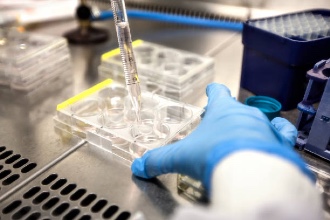
The journey of carrying and giving birth to a child is considered to be one of the most life changing experiences. For many people, childbirth represents hope and continuity, a chance to mold a new generation and watch a part of themselves grow into something unique, a way for them to feel an impossible amount of love and joy.
But as beautiful as that experience is, it’s not something that comes naturally to everyone. Some people try for years and years with no luck, meeting silence instead of the sound of a heartbeat. The heartbreak of infertility is something that often gets overlooked, and while it might feel hopeless, it’s certainly not the end of the road.
What is IVF?
Thanks to the new advances in medicine and medical equipment, there are now ways to help people who can’t conceive naturally. IVF, short for in vitro fertilization, is one of those advances. IVF is a process that brings new possibilities to those who may have given up on thoughts of parenthood. Even though it’s not easy, for many, it has become a lifeline.
IVF, which stands for in vitro fertilization, is a type of fertility treatment that gives people a chance to become parents when getting pregnant naturally isn’t working. It might sound overly complicated at first, but the idea is actually pretty straightforward once we break it down.
Normally, pregnancy happens as a result of a sperm and an egg meeting inside the body; but some people have infertility issues making this difficult or impossible, so IVF makes that crucial meeting happen in a lab instead of inside the body. The simplest way to explain this process is this: the doctor takes a woman’s eggs and combines them with sperm in a special dish. If the sperm succeeds in fertilizing the egg, an embryo (the very beginning of a baby) is created. When a couple of days pass, one or maybe more of these embryos are placed back into the uterus. If everything goes well, those embryos can grow into a healthy pregnancy. The process requires a lot of patience and time, it includes taking medication to help the ovaries produce more eggs, regular check-ups, and procedures to collect the eggs.
The process can take time and involves hormone treatments, careful monitoring, and a lot of patience. It’s not always easy physically or emotionally, but for a lot of people, IVF offers real hope when getting pregnant the natural way just isn’t working. IVF gives people the hope of finally building the family they’ve been dreaming of. It’s not always an easy process, and it doesn’t always work on the first try, but for millions around the world, IVF has made what once was impossible possible.
Step-by-Step Process
The key step to minimize anxiety and stress about any procedure, is to understand it step by step. The IVF process might seem overwhelming at first, but if we examine the process closely, it’s just a series of steps designed to give people the best chance of getting pregnant.Before anything begins, there are basic tests like blood work, ultrasounds, and an examination of the patient’s fertility which helps the doctors understand what’s going on and how to plan the treatment. Next, the woman starts taking hormone medications, which serve to help the ovaries to produce more eggs than usual. This usually lasts around 8–14 days, and during that time, there are regular check-ins to see how things are going. When the eggs are ready, the doctor schedules a short procedure to collect them. It’s done with a thin needle while the patient is
lightly sedated, so there’s no pain. The whole thing usually takes about 15–20 minutes. Around the same time, a sperm sample is collected either from a partner or a donor.
In the lab, the eggs and sperm are brought together. If all goes well, some of the eggs will be fertilized and start to grow into embryos as the lab carefully observes them. Not all of them will grow, but the goal is to find the ones that are developing well. Once the best embryo is chosen, it’s placed into the uterus in a quick, simple procedure. No surgery or anesthesia is needed. After that, it’s a waiting game to see if it implants and leads to a pregnancy. The hardest part emotionally might be the 10–14 days wait before taking a pregnancy test to find out if the transfer worked.
What are the important factors in IVF treatment?
Age plays a big role, especially for the woman providing the eggs. As we get older, the number and quality of eggs go down, which makes it harder for IVF to succeed. Success rates are higher for people in their 20s and 30s, but that doesn’t mean it’s impossible later on, just a little more challenging. Even if someone produces a good number of eggs or sperm, the quality is what really matters. Healthy eggs and strong sperm increase the chances of creating a healthy embryo that can actually lead to a pregnancy. The uterus needs to be ready and able to support a pregnancy. If there are issues like fibroids, scarring, or other conditions that affect the lining of the uterus, it might make it harder for an embryo to implant and grow.
Things like smoking, drinking, poor diet, stress, and lack of sleep can also impact fertility and IVF success. Taking care of your body, before and during treatment, is one of the most crucial elements of making this treatment work. Sometimes IVF doesn’t work on the first try, and that’s not unusual. Some people need more than one round before they get a positive result, and each cycle can offer more insight into what’s working and what’s not.
Experience matters. Different clinics have different approaches, technologies, and success rates. A skilled and supportive medical team can make a huge difference in how the process goes, both medically and emotionally. And that’s why we invite you to join us, Via Premium, for this journey.
Why choose Via Premium?
In recent years, one country that keeps popping up more and more in discussions about IVF ia Turkey. In recent years, Turkey has become one of the top destinations for IVF treatment, and also for healthcare overall. Our IVF treatments have come to be known for their impressive success rates, as well as the fully equipped modern clinics, and experienced doctors. One of the key reasons that so many people choose Turkey for IVF treatment is because our success rates are competing with clinics in the U.S. and Europe. That’s partly due to advanced technology, but also the fact that our clinics always take a personalized approach, we adjust treatment plans to each patient’s unique needs and situations, using a one-size-fits-all method doesn’t fit us. Turkey’s fertility specialists are highly trained, most of them with internationalexperience and impressive educations. The clinics are extremely well equipped, surrounded with the latest techniques and technologies, like embryo freezing, genetic testing, and advanced fertilization methods. Our facilities are world-class, and depsite the fact that IVF can be incredibly expensive, here in Turkey, the price is significantly lower, even with travel and accommodations included in the cost, and the care is still top notch. That’s only one of the reasons why so many people from other countries, especially from Europe and Middle East travel here for treatment.
In a lot of hospitals around the world, you might have to wait months to start treatment, but our clinics are generally capable of starting fairly quickly, because the process is exceptionally organized, and we always keep international patients in mind. And with Via Premium, you will be assigned a personal translator if you have the need, so that the language and culture barriers can be lifted to reveal the atmosphere of understanding and trust. For us, this journey isn’t just about science, it’s about making you feel seen and supported through every step.



Other Posts
 Cervical Cancer Awareness Month: Prevention and Early Detection
Cervical Cancer Awareness Month: Prevention and Early Detection
 The Hollywood Smile: A Detailed Step-by-Step Guide
The Hollywood Smile: A Detailed Step-by-Step Guide
 Hollywood Smile: Transform Your Smile
Hollywood Smile: Transform Your Smile
 Thigh Lift Surgery (Thighplasty): Sculpt Firmer Thighs
Thigh Lift Surgery (Thighplasty): Sculpt Firmer Thighs
 Tummy Tuck (Abdominoplasty)
Tummy Tuck (Abdominoplasty)
 Body Contouring: Reshape Your Body, Restore Your Confidence
Body Contouring: Reshape Your Body, Restore Your Confidence
 Planning Your Health in Advance: Medical Checklists for the New Year
Planning Your Health in Advance: Medical Checklists for the New Year
 New Year 2026: Start the Year Healthier and Happier
New Year 2026: Start the Year Healthier and Happier
 Dermal Fillers: Restore Your Youth
Dermal Fillers: Restore Your Youth
 Septoplasty: Breathe Freely Again
Septoplasty: Breathe Freely Again








